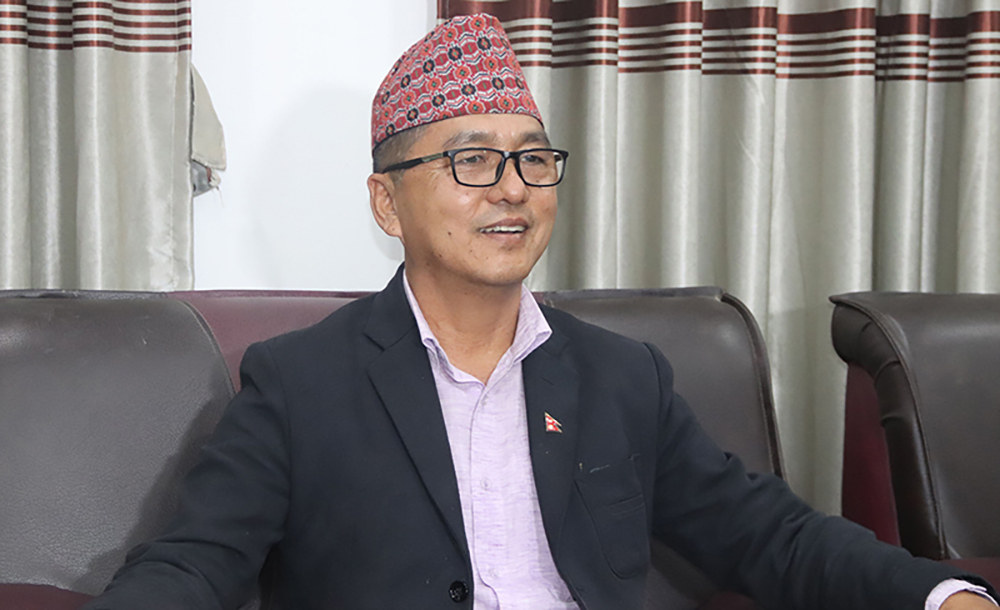KATHMANDU: Rastriya Prajatantra Party (RPP) Chair Rajendra Lingden has strongly opposed the Supreme Court’s recent order to completely ban infrastructure development in protected areas, calling it a major obstacle to Nepal’s development.
Speaking at a meeting with officials from the Independent Power Producers Association of Nepal (IPPAN) on Thursday, Lingden said that Nepal’s energy sector is already struggling due to flawed government policies, and the court’s decision will further hamper progress.
“This order will stop development in the country,” Lingden said, adding that power producers are facing immense challenges due to government negligence and policy inconsistencies.
He urged the government to take immediate steps to address the demands of energy entrepreneurs, emphasizing that the energy sector is the backbone of Nepal’s economic growth.
RPP Chief Whip Gyanendra Shahi echoed Lingden’s concerns, warning that the court order will halt vital infrastructure projects and disrupt electrification efforts, particularly in Karnali Province, which is still struggling with inadequate power supply.
“This is a clear case of judicial interference in the executive’s jurisdiction,” Shahi said, arguing that the forest-related acts—which were passed by both houses of parliament—should not have been invalidated by the judiciary.
“The court has nullified an act made by the elected parliament. This is an irreconcilable move, and it infringes upon the rights of the executive,” he said.
Beyond legal concerns, hydropower entrepreneurs at the meeting raised alarms over the prolonged suspension of Initial Public Offerings (IPOs) and Further Public Offerings (FPOs) of hydropower companies, which has stalled investment worth billions.
IPPAN President Ganesh Karki questioned the Finance and Accounts Committees’ intervention in securities regulations, arguing that their directive to the Securities and Exchange Board of Nepal (SEBON) to halt IPO approvals is illegal.
“If procedural rules are stronger than the act itself, then why was a bill even brought forward?” Karki asked.
IPPAN Deputy General Secretary Prakash Dulal pointed out that hydropower companies’ IPO approvals have been frozen for over a year because the Accounts Committee directed SEBON not to grant permissions unless companies had at least 90 percent real net worth.
“This has caused major setbacks for power companies and slowed down investment in the sector,” he said.
IPPAN’s associate member Shailendra Guragain warned that the suspension of IPO and FPO approvals has had a domino effect, disrupting dozens of ancillary industries tied to hydropower development.
Meanwhile, IPPAN Vice President Uttam Bhlon Lama raised concerns over why 39 hydropower companies that had already met 90 percent of the net worth requirement were still denied permission to issue IPOs.
“The public offering of 74 hydropower companies worth Rs 56 billion has been stuck at SEBON for months,” he said.
RPP Chief Whip Shahi strongly criticized the Accounts Committee for interfering in matters that fall under the jurisdiction of the Finance Committee.
“This should be handled by the Finance Committee, not the Accounts Committee,” Shahi said, vowing to raise the issue in the Finance Committee. He also pledged to summon SEBON’s Chairman and demand an explanation for the continued delay in IPO approvals.
The concerns raised at the meeting highlight the growing frustration within Nepal’s energy sector. Power producers argue that the government’s lack of policy consistency, judicial interference, and bureaucratic roadblocks are preventing billions of rupees worth of hydropower projects from moving forward.
As Nepal struggles to meet its energy export goals under agreements with India and Bangladesh, stakeholders are calling for urgent reforms to prevent further stagnation in the sector. However, with both the government and regulatory bodies failing to act, the future of Nepal’s hydropower-driven economic growth remains uncertain.









Comment